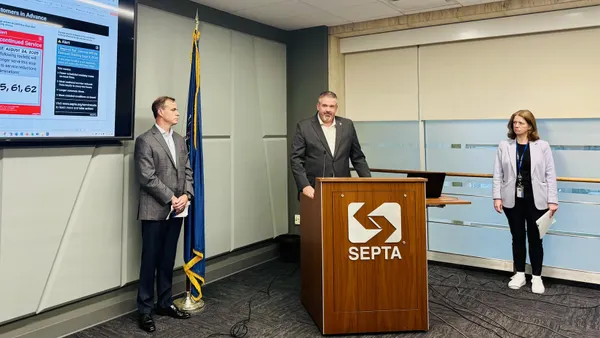Dive Brief:
- As many as 40% of municipal leaders in Michigan — including 72% of cities, 68% of counties, 46% of villages and 30% of townships — said they are concerned about their locality’s fiscal health over the next five years as federal funding from resources such as the American Rescue Plan, Infrastructure Investment and Jobs Act and Inflation Reduction Act winds down, a University of Michigan survey found.
- But officials may be unprepared for what’s to come: Among local government officials across 1,328 Michigan jurisdictions surveyed this spring, 60% said they were not preparing for a loss of federal or state funding. Jurisdictions most likely to be preparing for federal funding cuts included counties and cities in the state.
- “Both uncertainty as well as other internal local governmental capacity challenges are hindering some local governments from girding themselves for the coming drop in revenues that will impact their budgets and their service provision,” Debra Horner, senior program manager for the survey, said in a statement.
Dive Insight:
Michigan’s 83 counties received $1.93 billion through the President Biden-era American Rescue Plan Act between 2021 and 2022, according to the University of Michigan. A total of 49 cities and townships in the state received $1.8 billion, and smaller cities, townships and villages in the state received $664 million from the programs, with requirements to spend the funding by December 2026.
Since taking office, however, the Trump administration has set out to slash federal funding programs and curb spending. In January, the administration paused funding for the Biden-era IIJA and IRA. The administration also plans to cut federal housing support to local governments.
Faced with a ticking clock for current funding and looming cuts, many localities in Michigan have adopted a “wait and see” approach amid funding uncertainty, according to the survey.
“We are laying low in hopes of continued funding at current levels,” one survey-taker noted.
Other jurisdictions are tightening their belts.
“We are working to maintain self-reliance,” another respondent stated. “We have prepared our council during budget works sessions to understand that the days of those funding sources just ‘rolling in’ are numbered and we have to take care of ourselves with the resources we have.”











